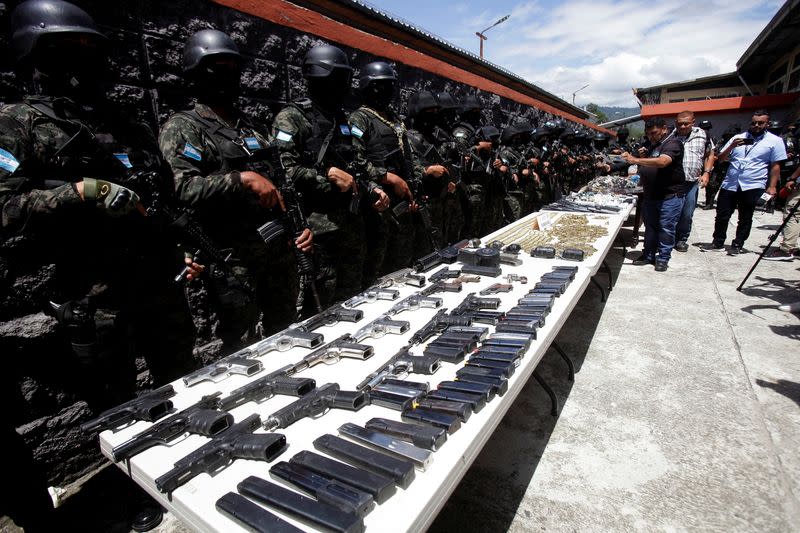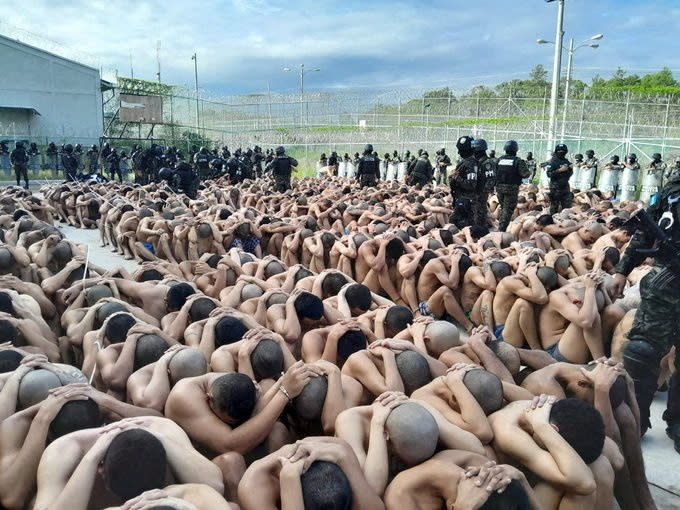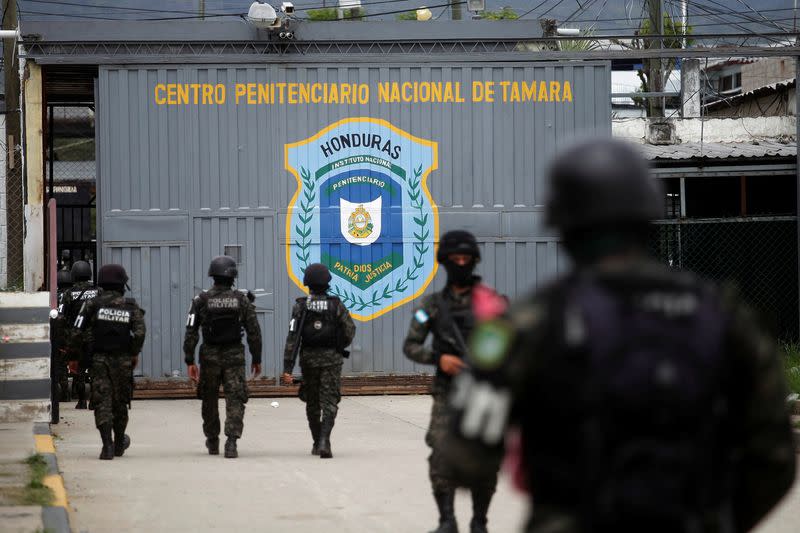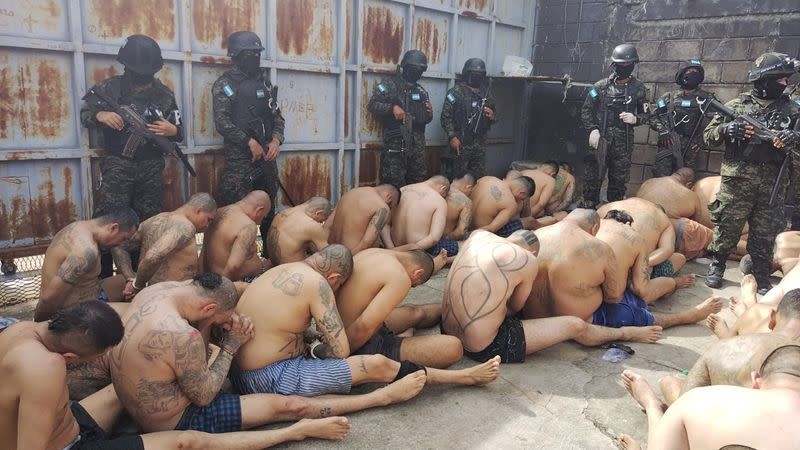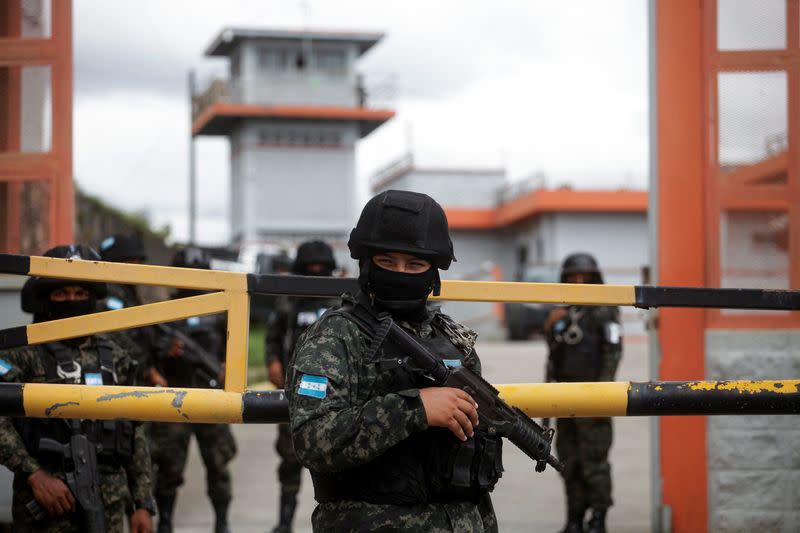Honduras military takes over prisons after dozens die in riot
- Oops!Something went wrong.Please try again later.
TEGUCIGALPA (Reuters) - Honduras' military began taking control of the country's violent prisons on Monday, following a gang dispute that left 46 inmates dead at a women's detention center last week, officials said.
Leftist President Xiomara Castro announced last week she would hand the military police control of the prison system, a departure from a past stance of demilitarizing security, as her administration seeks to stop organized crime activity inside prisons.
Official video showed hundreds of shirtless male inmates, many tattooed and with their heads shaved, arranged on the floor of Honduras' high-security Tamara prison with their arms over their heads, guarded by heavily armed soldiers.
The images show similarities to ones shared earlier this year by neighboring right-wing El Salvador's government, which has beefed up prison security and locked up more than 62,000 alleged criminals during a crackdown on gangs.
"Our mission is to defeat organized crime inside the prisons and we are (also) going after the intellectual authors operating from outside," Defense Minister Jose Manuel Zelaya said in a tweet.
Tamara, where some 4,200 inmates are crammed into a facility with a capacity to accommodate 2,500, is one of two prisons, along with La Tolva, that the military police assumed control over on Monday, Armed Forces spokesperson Antonio Coello said.
In Honduras, some 20,000 inmates coexist in 26 overcrowded prisons, with a United Nations report saying that the country's prisons are 34.2% over capacity.
Military police on Monday seized pistols, machine guns, ammunition, magazines and grenades from an area of the Tamara prison occupied by the Barrio 18 gang, Colonel Fernando Munoz told reporters.
"The corruption in the prisons is over. We are going to control it and there will be no calls coming out of here to order extortions or executions," the officer said in a press conference.
(Reporting by Gustavo Palencia in Tegucigalpa; Writing by Valentine Hilaire; Editing by Matthew Lewis)
